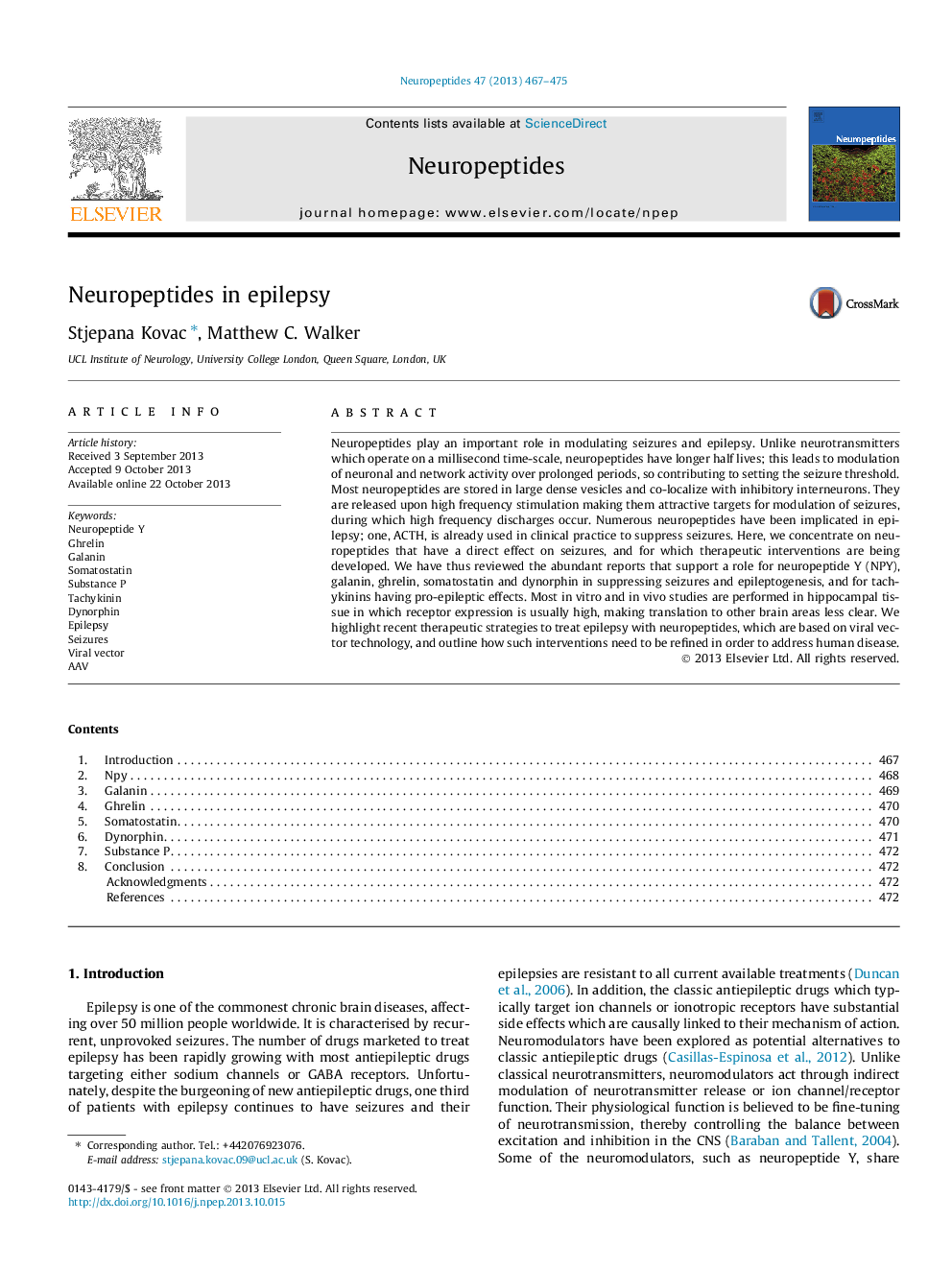| Article ID | Journal | Published Year | Pages | File Type |
|---|---|---|---|---|
| 2808186 | Neuropeptides | 2013 | 9 Pages |
Neuropeptides play an important role in modulating seizures and epilepsy. Unlike neurotransmitters which operate on a millisecond time-scale, neuropeptides have longer half lives; this leads to modulation of neuronal and network activity over prolonged periods, so contributing to setting the seizure threshold. Most neuropeptides are stored in large dense vesicles and co-localize with inhibitory interneurons. They are released upon high frequency stimulation making them attractive targets for modulation of seizures, during which high frequency discharges occur. Numerous neuropeptides have been implicated in epilepsy; one, ACTH, is already used in clinical practice to suppress seizures. Here, we concentrate on neuropeptides that have a direct effect on seizures, and for which therapeutic interventions are being developed. We have thus reviewed the abundant reports that support a role for neuropeptide Y (NPY), galanin, ghrelin, somatostatin and dynorphin in suppressing seizures and epileptogenesis, and for tachykinins having pro-epileptic effects. Most in vitro and in vivo studies are performed in hippocampal tissue in which receptor expression is usually high, making translation to other brain areas less clear. We highlight recent therapeutic strategies to treat epilepsy with neuropeptides, which are based on viral vector technology, and outline how such interventions need to be refined in order to address human disease.
